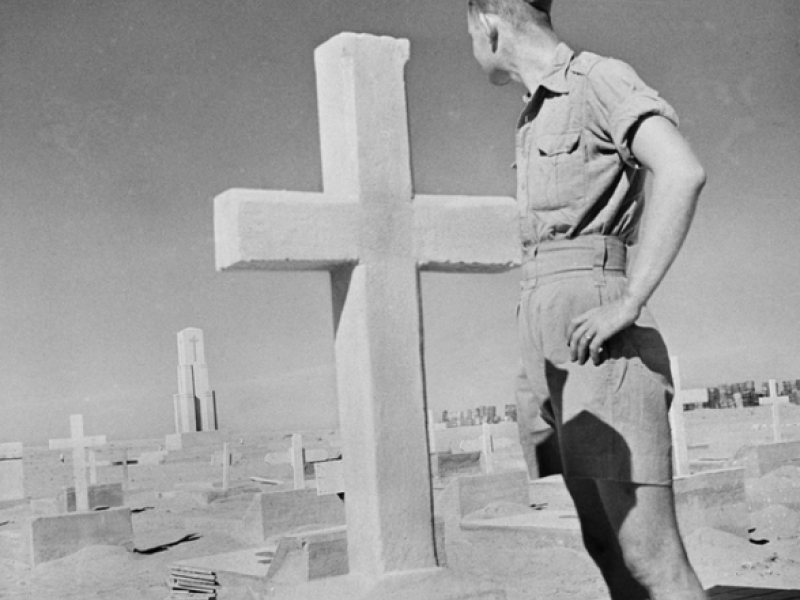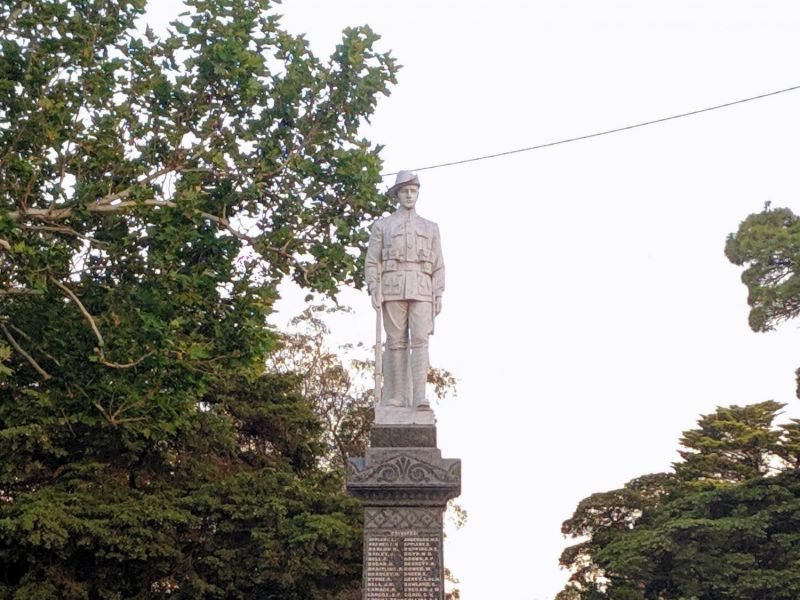Lance Corporal Francis Oakenden Roberts, 2/17th Battalion
Francis “Barney,” Roberts was born on 23 February 1904, the youngest son to Joseph and Mary Roberts of Braidwood, New South Wales.
Barney Roberts was educated at Goulburn High School, where his academic ability “earned him the very highest opinion of his teachers”. He spent a short period of time working on the land before entering the education department, managing schools in the Goulburn District and at Binda.
He later resigned and worked in a number of different roles, marrying Eileen during this period. They eventually settled in Braidwood, New South Wales, where they ran the local newsagency and raised a large family.
Roberts was a keen sportsman and it was reported that “probably no other man for very many years has done so much for sport in the district.” He played cricket and Australian Rules football, and acted as secretary for both clubs for years. It was said that “Barney Roberts never did an unfair act on the playing fields, and he always enjoyed the respect of every team he played against”. He was a popular figure in the Braidwood district and “enjoyed a reputation few men are privileged to hold”.
Barney Roberts enlisted in the Second Australian Imperial Force in June 1940, motivated at least in part by a desire to do his duty. He underwent a period of training in camp in Goulburn, where he was quickly promoted to lance corporal, and later posted to the 2/17th Battalion. He left Australia for active service overseas early the following year.
Lance Corporal Roberts was sent to the Middle East theatre of operations, where he undertook further specialist training, passing with distinction.
In mid-July 1941, Roberts was sent to join his battalion on the battlefield. At the time, the 2/17th Battalion was forming part of the garrison in the besieged Libyan town of Tobruk. The battalion would remain there for seven months, occupying defensive positions and conducting patrols into no man’s land.
On 25 September Roberts was travelling in a truck which hit a mine and was blown up. He was the only one badly wounded in the blast, and was evacuated to hospital. His wounds proved too severe, however, and he died two days later.
In Australia the local newspaper reported his death in an article which said, “We do not doubt … that ‘Barney’ would not have asked to die any other way than for his King and the great country he loved so dearly”.
Francis Oakenden Roberts was buried in the Tobruk War Cemetery where his remains today under the simple inscription, “RIP”. He was 37 years old, survived by his wife, Eileen, and six children under 12.
Meleah Hampton, Historian, Military History Section
- Australian War Memorial https://www.awm.gov.au/collection/AWM2019.1.1.351

 Australian War Memorial
Australian War Memorial